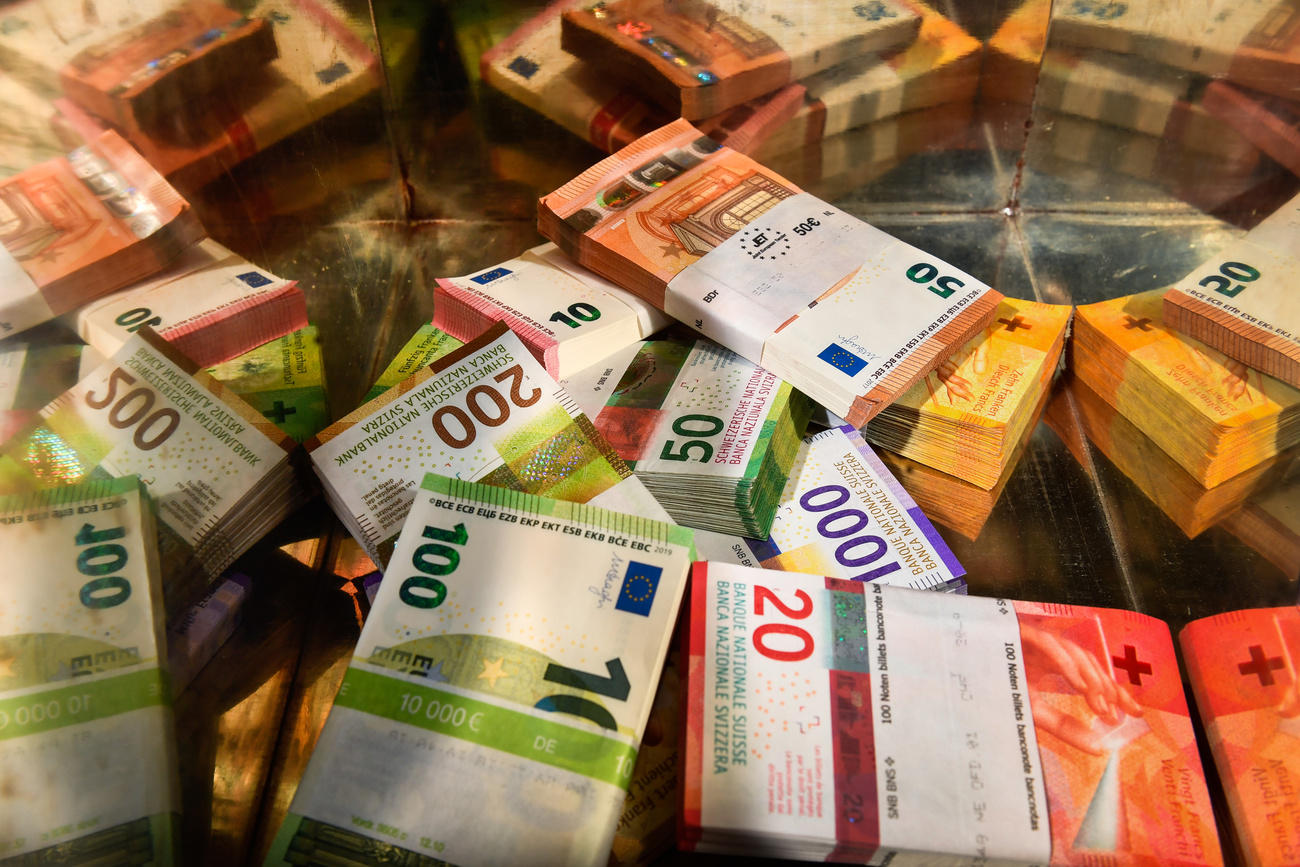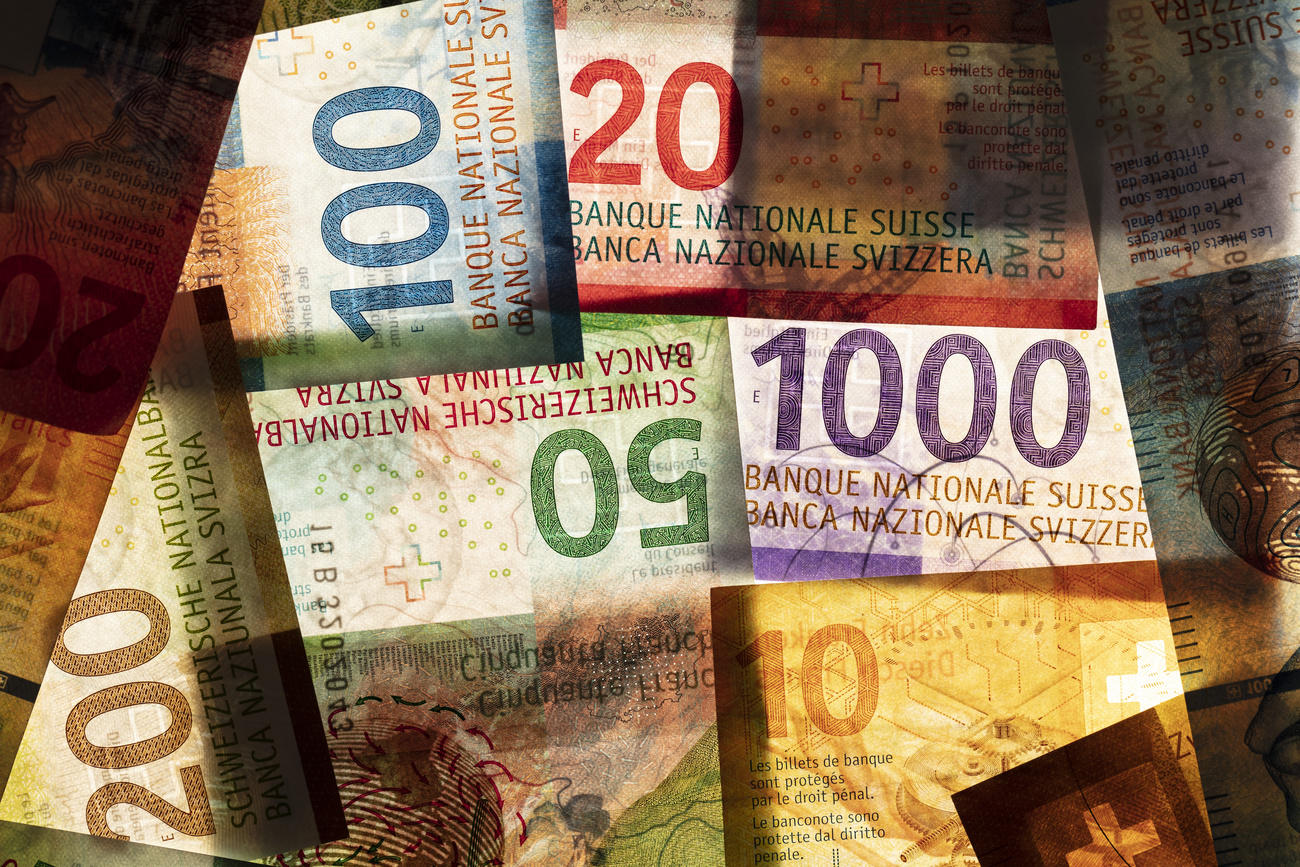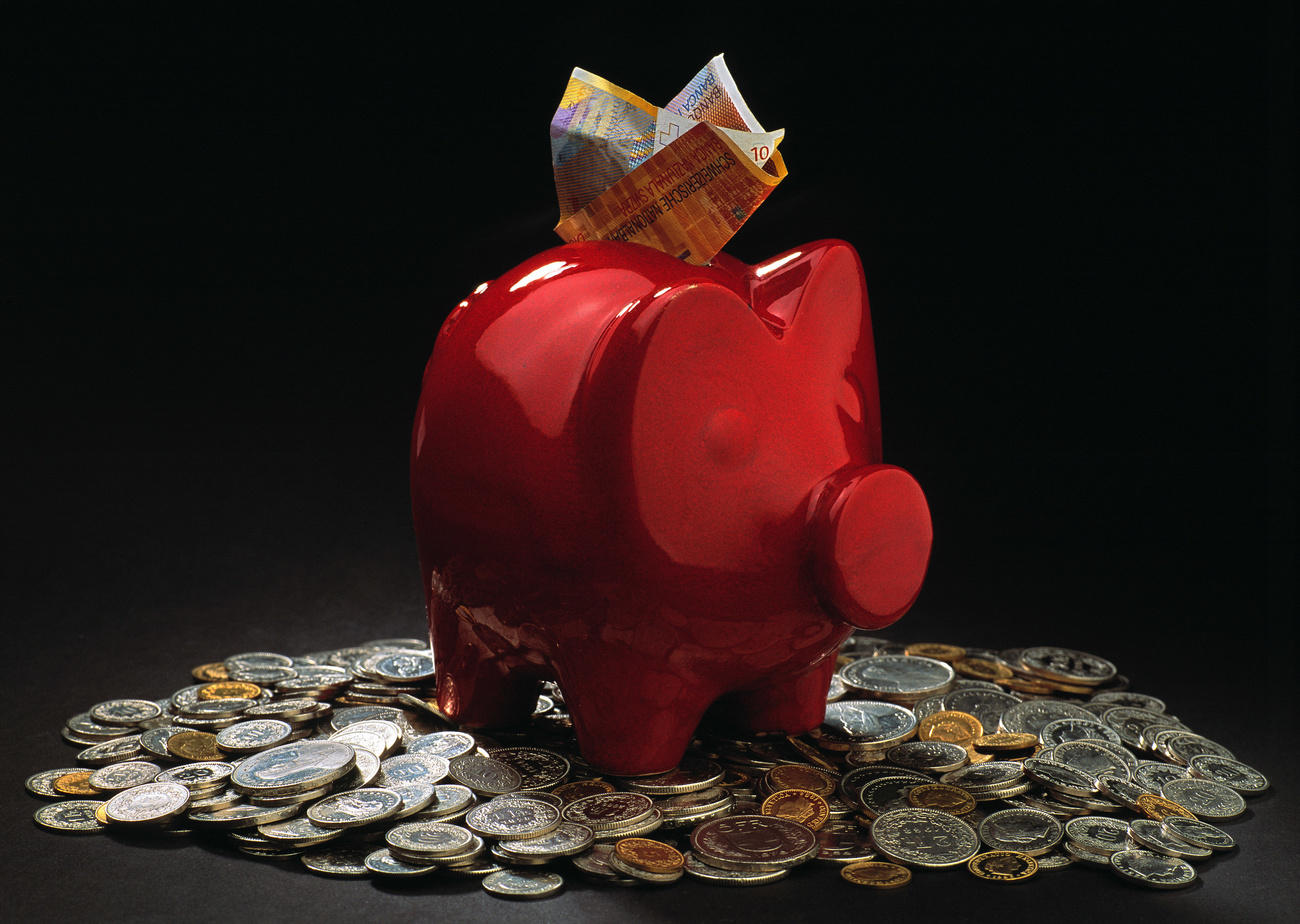Negative interest continues to hit banks – and customers

Swiss banks paid out CHF1.3 billion ($1.4 billion) in negative interest rates last year compared to €8.5 billion from competitors in the eurozone. There is increasing evidence that banks are passing on a greater share of these charges to customers.
Commercial banks have for some years been forced to pay for the privilege of parking excess cash at central banks. Negative interest has been imposed across Europe to stop investors flooding into stable national currencies, such as the Swiss franc, and causing them to excessively appreciate. A strongly valued national currency harms the activities of exporters and domestic tourism industries.
The Swiss National Bank (SNB) last year relaxed its conditions, allowing banks to deposit higher sums before being charged negative interest. This reduced the payment from CHF1.8 billion in 2019 to CHF1.3 billion last year, according to a reportExternal link by Deposit Solutions. Between 2016 and 2020 Swiss banks paid a total of CHF8.3 billion in negative interest, says the German fintech company.
In the eurozone, this figure comes to €33.7 billion (CHF37 billion) – a burden that has been shouldered mainly by German and French banks. When comparing the size of national economies and financial systems, Swiss banks are among the highest payers, according to Deposit Solutions.
Eurozone banks can offset part of these costs by borrowing funds at negative interest rates from central banks if they pass these funds on to companies and households to ease the impact of coronavirus on economies.
Swiss banks are increasingly passing on charges to clients, notably companies and individuals who have excess funds in their accounts.
To start with UBS and Credit Suisse both allowed clients to hold up to CHF2 million before imposing negative interest rates. But in January, UBS said it would lower this threshold to CHF250,000 for some clients.
Most other banks have also imposed negative interest rate charges, some of which have widened the net over time to capture more customers. In principle, clients are more likely to escape charges if they use more banking services, such as taking out a mortgage or other loan.
A survey by audit company EY SwitzerlandExternal link found in January that just 11% of banks had no plans to pass on negative interest rates to customers. The year before, this number was 21% and five years ago it was 70%.

More
Who wins and who loses because of negative interest rates?

In compliance with the JTI standards
More: SWI swissinfo.ch certified by the Journalism Trust Initiative




You can find an overview of ongoing debates with our journalists here. Please join us!
If you want to start a conversation about a topic raised in this article or want to report factual errors, email us at english@swissinfo.ch.